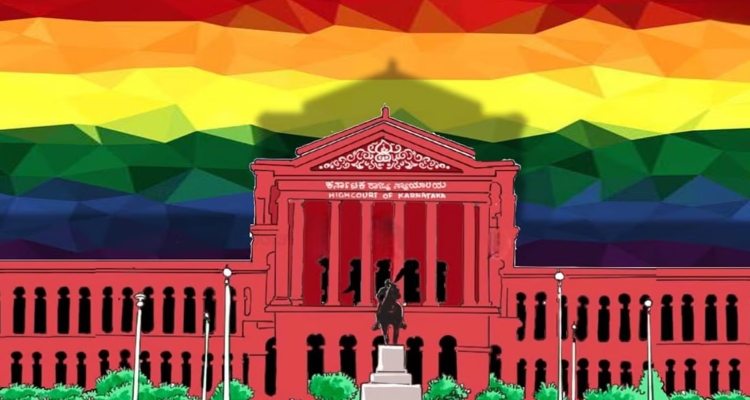
The Karnataka High Court has recently directed the National Law School of India University (NLSIU) to implement a 0.5% reservation for transgender persons in its admission process until the university establishes its own comprehensive reservation policy for this community.
Additionally, the court instructed NLSIU to offer a fee waiver to students admitted under the transgender reservation quota and seek funding from the State or Central governments to support this initiative.
The court’s ruling came in response to a PIL filed by 33-year-old Mugil Anbu Vasantha, with Justice Ravi V. Hosmani issuing the directions while disposing of the case. In his order, the judge noted that the Karnataka State government had already reserved 1% of public sector jobs for transgender individuals, leading the court to apply a similar interim reservation policy at NLSIU.
The court also emphasized the need for NLSIU to adhere to a 2014 Supreme Court directive in the case of National Legal Services Authority (NALSA) vs. Union of India. This ruling mandated that educational institutions provide reservations and financial aid for transgender students.
The court ordered NLSIU to formulate a proper reservation policy and measures for providing financial support to transgender students before the next academic year’s admission process begins.
The case stemmed from a situation where Vasantha, a transgender individual, was provisionally admitted to NLSIU’s three-year LLB course for the 2023-24 academic year, following a previous court directive in August 2023. However, Vasantha was unable to attend classes because of financial constraints, having only paid ₹50,000 of the ₹3.75 lakh required for the first year. Despite NLSIU offering to pay the interest on a student loan, Vasantha could not secure the loan to cover the remaining fee.
In light of these circumstances, the court directed NLSIU to admit Vasantha under the interim transgender reservation, provided no other transgender candidate had already been admitted to the course for the current academic year. The court also urged the State government to address transgender reservation and fee reimbursement policies in education, as outlined in the NALSA case, and to take steps toward implementing these policies.
This ruling represents a significant step toward ensuring educational inclusion for transgender individuals, reinforcing the importance of equitable access to higher education and financial support.




